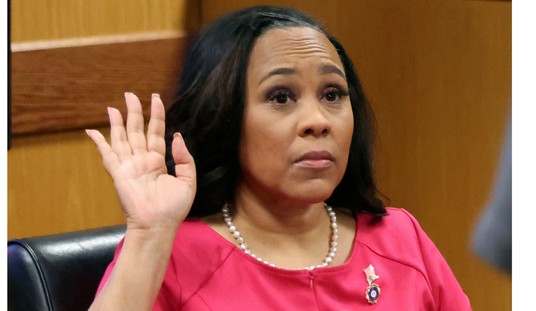If one wonders what the difference is between static and dynamic tax analysis, Phil Mickelson gave a real-world example this weekend. After tax hikes on big earners took place on both a federal and state level in California, the Golden State resident gave a big hint that he might either take his earnings somewhere else, or stop playing golf and rely on his investments:
Professional golfer Phil Mickelson told reporters Sunday that he is considering “drastic changes” in response to state and federal income tax hikes — including possibly leaving the United States.
“It’s been an interesting off-season. And I’m going to have to make some drastic changes. I’m not going to jump the gun and do it right away, but I will be making some drastic changes,” Mickelson said during a press conference following the Humana Challenge golf tournament in La Quinta, Calif.
When pressed by reporters about whether those “drastic changes” could include leaving California or even the United States, the four-time major championship winner didn’t foreclose the possibility. But he made clear the reason he is considering such drastic options is the massive tax burden he now shoulders.
“But if you add up, if you add up all the federal and you look at the disability and the unemployment
and the Social Security and the state, my tax rate’s 62, 63 percent. So I’ve got to make some decisions on what I’m going to do,” said Mickelson.
In November, California voters approved Democratic Gov. Jerry Brown’s Proposition 30, which raised taxes on all state residents who earn more than $1 million in annual income. California now has the highest state income tax rate
in the nation.
All right, class, here’s the lesson on tax analysis. According to static analysis, used by proponents of tax hikes, raising the rate on people like Mickelson will derive a predictable amount of additional revenues because those proponents assume that the wealthy don’t have the resources or the intelligence to adjust to the new policy. Dynamic tax analysis assumes that raising taxes will prompt the people with the most resources — like Mickelson — to change their behavior to meet the new tax environment.
Tax-hike proponents think California will get a bigger cut of Mickelson’s earnings. Dynamic analysis proponents think California won’t get any of Mickelson’s earnings, because Mickelson’s likely to move to a state with no state income tax, or at least lower rates. Which do you think is the more realistic assumption, and not just for Mickelson but for the rest of the well-resourced high-end earners looking for ways to minimize the bite on their checks? Oh, let’s not always see the same hands …
The media reaction to this could best be described as mixed. The Los Angeles Times’ Houston Mitchell lamented how difficult it was to generate sympathy for the rich, even as he admitted that Mickelson had a point:
It’s hard to feel sorry for a guy who has made more than $67 million in PGA Tour earnings (and that doesn’t even count millions more in endorsement deals), but you can sort of see his point. Phil Mickelson announced on Sunday that he will make “drastic changes” because of federal and California state tax increases.
Well, I don’t think Mickelson was looking for sympathy. I think he was explaining that he doesn’t have to put up with Jerry Brown’s tax hikes to fund a massively dysfunctional state government, and that he’s not likely to do so. Fox Sports gave a much different take on Mickelson’s announcement:
Phil Mickelson gave a civics lesson after his play Sunday in the final round of the Humana Challenge. The lecture: I’m not going to pay more in taxes than I can take home to my wife and kids.
As a longtime California resident, Mickelson vented after shooting a final-round 66 for a 17-under 271 total and tie for 37th in his 2013 debut. Last fall, Californians approved Proposition 30, which boosts the state income tax to 13.3 percent on earnings of $1 million or more. That’s a 29.1 percent increase from the previous “millionaires tax” in a state with tremendous fiscal issues.
Compound that increased liability with the recent changes to the federal tax code, which bumps the top bracket to 39.6 percent from 35 percent to avoid going over the so-called fiscal cliff, and Mickelson’s tax hit is substantial.
Jeff Dunetz gets an A in dynamic tax analysis:
Some people vote at the ballot box, others vote with their feet. As Mickelson implies–why work if you only get to keep 38% of your money? Some people (who can afford it) will stop working, others may leave the country. But in the end, as usually happens higher tax rates (which the Democrats want to make even higher) lead to lower tax revenue.
Let’s put it this way. Economic growth comes from the kind of dynamic policy that creates wealth rather than redistributes it in the assumption of a zero-sum game. Tax policies created with static analysis in mind tend to produce stasis — or worse.








Join the conversation as a VIP Member